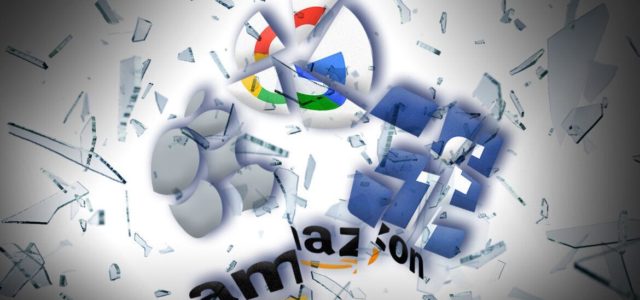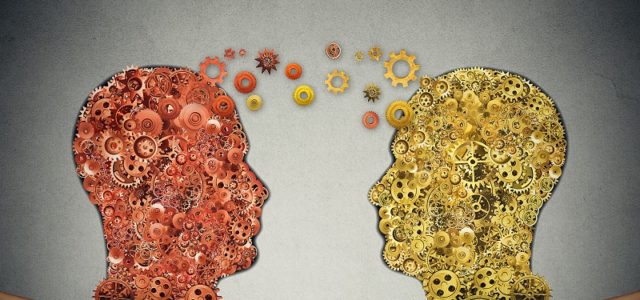Why are we being told that A.I. will change everything? It is beginning to sound as gloomy as Brexit.
Because fundamentally it is questioning how humans think. Human intelligence is the key quality above else that separates us from all the other creatures. But now it may be possible for machines to become cleverer than humans.
2) But that’s a long way off, right?
Not quite. General A.I. – when robots can theoretically handle any task, as well or better than a human – is a long way off. But Narrow A.I. is a machine that specializes in just one area, such as chess or driving. That is already here now.
3) Well if it’s just chess-playing computers and self-driving cars – why should I be worried?
That’s just a couple of examples. It might be hard to believe but you already interact with dozens of A.I. systems daily. Whenever you buy from Amazon, watch a movie on Netflix, read posts on Facebook or order an Uber taxi, it is actually an A.I. system that is making all the decisions. In fact, today over 80% of the trade deals on the London Stock Exchange are conducted automatically by robots because they make decisions faster than humans.
4) What about Alexa? I am very fond of her, she wakes me up with soothing music every morning and is very friendly, nothing like the Terminator robot.
That’s exactly the point. Hollywood has conditioned us to think of A.I. solely in terms of android robots with humanoid bodies that either help us or are hell-bent on our destruction.
The reality is that A.I. is just clever computer code that gets better the more it is used. It is already inside our smartphone apps and home digital assistants like Alexa, Google Home and Apple Siri but will soon control the smart home, smart offices/buildings and factories.
The smart fridge, for example, will monitor all your food, inform you beforehand of its ‘use-by’ dates, show you recipes to use up what you have and how many calories you will consume if you make the dish, create next week’s shopping list and even place the order for you.
5) Well, that’s not so bad – in fact it is just what I want, all my everyday mundane tasks automated.
Yes, that’s where we are heading. There will be hundreds of sensors that will keep track of everything around us, our offices, homes, cars and even our bodies so that doctors can continuously monitor our vital signs (such as blood pressure, heart rate, stress) and can warn us of the onset of any critical illness in advance of it happening.
Close monitoring of air quality, pollution, emissions will also mean cleaner healthier environment and the introduction of driver-less cars may even lead to fewer cars on the roads for the first time and also fewer accidents.
6) So that should mean lots of jobs for everyone, right?
Yes, up to a point. Many of the new jobs will be technology-centric requiring an understanding of how A.I. can be applied, its data requirements and the ability to interpret the results. A graduate with a degree in maths or data sciences will be in high demand and perfectly placed to take advantage of the new opportunities.
Ideally, a STEM (Science, Technology, Engineering and Maths) education also needs to incorporate the humanities since future work will require strong interaction with people and especially collaboration with multi-disciplinary teams; and therefore soft skills will be equally important.
7) But I have heard that A.I. will replace thousands of jobs – can that be true?
Studies show that a large percentage of tasks within certain jobs are repeatable, mundane or require computation – these tasks will be automated. For instance, we have already seen this for the supermarket check-out operator but portions of the day to day work of accountants, lawyers, doctors, teachers, etc are very repeatable and can easily be done by A.I. This will reduce costs and inefficiencies, and improve responsiveness.
A recent government report indicated that by fully automating repetitive and admin tasks, such as communicating medical notes, booking appointments and processing prescriptions, the NHS can create a triple whammy – reduce the shortage of frontline staff, reduce workload of hospital doctors, GPs and nurses by a third, and achieve annual cost savings of £12.5bn.
8) That all sounds like good news – what’s the downside?
As we said, jobs will need to change, major re-skilling will be necessary and yes many jobs will be lost. An Oxford University study indicated as many as 47% of jobs will completely change.
This could cause major upheaval to society if not managed carefully. Furthermore – as with online data-sharing – there are real concerns over data privacy, ethical issues and cyber hacking, to name but a few – all of which will be on a far grander scale.
9) What is the best course of action to take?
Given that automation will change every job by at least 25%, re-skilling and re-learning will be essential for everyone and all businesses should start planning for it. The advice to young people is not to rely on one career – they are likely to change jobs and careers several times in their lifetimes and each shift will require major re-learning and even going back to university.
Transferable skills such as emotional intelligence, creativity, collaboration and an entrepreneurial mindset are key to future-proofing yourself. Also as with any major disruption, there will be significant opportunities and many jobs will be created which we cannot foresee now.
10) But if androids and robots keep getting better and better – will they eventually take over from humans?
Have you been binging on sci-fi box sets? That actually is classified, and as they say, ‘If I tell you, I’ll have to kill you’. But in a word, yes.
Article by channel:
Everything you need to know about Digital Transformation
The best articles, news and events direct to your inbox







